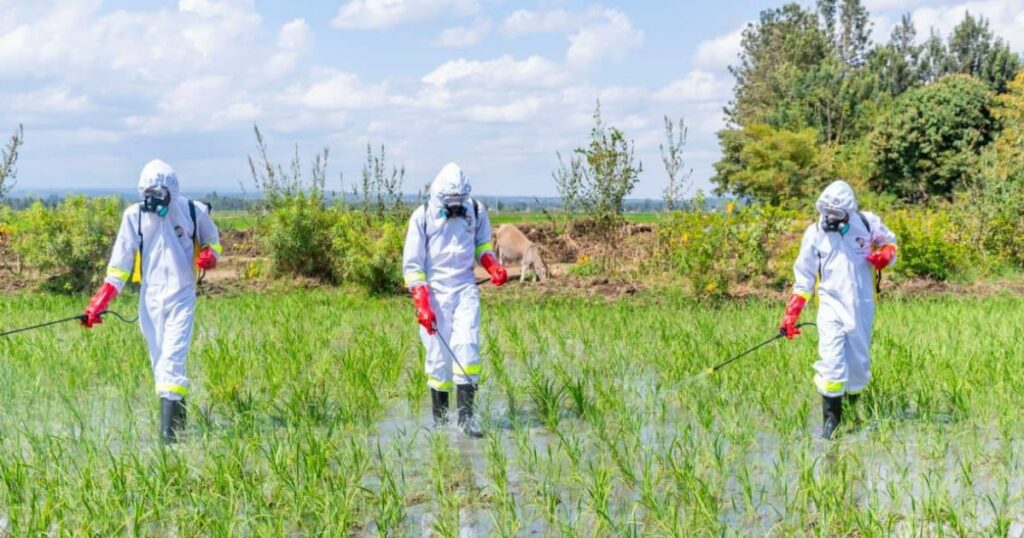Rice farmers in Kirinyaga County are set to benefit from free protective equipment and training on safe chemical handling through the Kilimo Swafi Campaign. The initiative, rolled out in the Mwea West rice plantations, will see the distribution of 3.8 million pieces of personal protective equipment (PPE) between 2025 and 2028.
The campaign aims to promote safer farming practices, including the proper disposal of chemical waste and the push to eliminate hazardous agrochemical products that, despite being banned, still find their way into farms. It also emphasizes the importance of farmer safety as a crucial element in achieving both productivity and consumer protection.
In Mwea, where over 25,000 acres are under rice cultivation, it is estimated that fewer than 1,000 farmers use protective gear. Many rely on unsafe practices due to lack of awareness or limited access to safety equipment. With only about 15 per cent of farmers owning PPEs, the campaign intends to close this gap by ensuring wider availability of protective gear and awareness across all 47 counties.
The campaign also highlights the dangers posed by counterfeit or cheap agrochemicals sold to unsuspecting farmers. Without proper information, many farmers expose themselves and their families to long-term health risks. The protective gear distribution will be coupled with education on identifying genuine chemicals and safe handling methods.
Farmers have welcomed the initiative, noting that a significant portion of their earnings often goes to treating health complications linked to pesticide exposure. They stress the need for continuous education, access to affordable protective equipment, and stronger government intervention to safeguard farmer welfare.
Beyond the health risks, improper disposal of chemical containers has become a growing concern. Many empty bottles are carelessly discarded in farms, rivers, roadsides, and even in homesteads, posing serious threats to both the environment and public health. Farmers have called for the establishment of proper systems to manage chemical waste safely.
The Kilimo Swafi Campaign seeks to change these practices by instilling a culture of responsibility and safety in agriculture. By protecting the health of farmers, their families, and the environment, the initiative is expected to boost both productivity and sustainability in rice farming.

